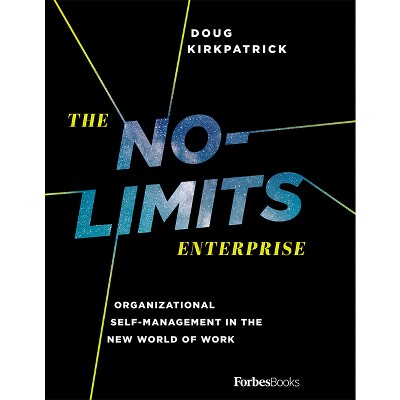Sponsored

Madness and Enterprise - by Nima Bassiri (Hardcover)
$105.00
In Stock
Eligible for registries and wish lists
Sponsored
About this item
Highlights
- Uncovers a powerful relationship between pathology and money: beginning in the nineteenth century, the severity of mental illness was measured against a patient's economic productivity.
- Author(s): Nima Bassiri
- 344 Pages
- Science, History
Description
About the Book
"This book explores the economic norms embedded within psychiatric thinking about mental illness in the North Atlantic world. Over the course of the nineteenth century, the concept of madness was subjected to an economically saturated style of psychiatric reasoning. Psychiatrists across Western Europe and the United States attributed financial and even moral value to an array of pathological conditions, such that some mental disorders were seen as financial assets and others as economic liabilities. By turning to economic conduct and asking whether patients, such as eccentrics, appeared capable of managing their financial affairs and money, psychiatrists could often circumvent uncertainties about a person's psychiatric health. What we learn is how in psychiatry an economic lens was used to reveal mental illness and uncover the hidden economic value of pathology itself. The psychiatric turn to economic reasoning signaled a transformation of the very idea of value in the modern North Atlantic. For the differences between the most common forms of social valuation-moral value, medical value, and economic value-were flattened and rendered equivalent and interchangeable. If what was good and what was healthy was increasingly conflated with what was remunerative (and vice versa), then a conceptual space opened through which madness itself could be converted into an economic form and subsequently redeemed, and even revered"--Book Synopsis
Uncovers a powerful relationship between pathology and money: beginning in the nineteenth century, the severity of mental illness was measured against a patient's economic productivity. Madness and Enterprise reveals the economic norms embedded within psychiatric thinking about mental illness in the North Atlantic world. Over the course of the nineteenth century, various forms of madness were subjected to a style of psychiatric reasoning that was preoccupied with money. Psychiatrists across Western Europe and the United States attributed financial and even moral value to an array of pathological conditions, such that some mental disorders were seen as financial assets and others as economic liabilities. By turning to economic conduct and asking whether potential patients appeared capable of managing their financial affairs or even generating wealth, psychiatrists could often bypass diagnostic uncertainties about a person's mental state. Through an exploration of the intertwined histories of psychiatry and economic thought, Nima Bassiri shows how this relationship transformed the very idea of value in the modern North Atlantic, as the most common forms of social valuation--moral value, medical value, and economic value--were rendered equivalent and interchangeable. If what was good and what was healthy were increasingly conflated with what was remunerative (and vice versa), then a conceptual space opened through which madness itself could be converted into an economic form and subsequently redeemed--and even revered.Review Quotes
"Lucid and thought-provoking . . . Readers with an interest in the histories of mental science and capitalism will enjoy Bassiri's skillful analyses and find Madness and Enterprise a rewarding read." -- "Isis"
"Explores how economic reasoning has been adopted by psychiatric clinicians and researchers in order to facilitate diagnostic assessments about potential psychiatric patients on the basis of their apparent economic behaviors, focusing on how economic value came to comprise part of the ontology of madness."-- "Journal of Economic Literature"
"Recommended."-- "Choice"
"Bassiri offers a rich blend of social theory, history, and philosophy of the human sciences to uncover what he terms a new 'economization of madness' that emerged at the turn of the last century. . . . For readers interested in the fascinating 'borderlands' of human behavior not clearly legible as either sane or insane, this book is a rewarding, provocative read."-- "British Journal for the History of Science"
"The book offers an extremely interesting and rather understudied perspective. It is very well-written, well-researched and contains a plethora of innovative arguments. Apart from showing how madness became central to economic rationalization, it engages in a critique of modern capitalism based on the irrationality of its social order. . . . This is a fascinating work that would appeal not only to academics, but also to those who are interested in the nature of the interdisciplinary exchange between economics and psychological sciences, and also in the conceptual underpinnings of modern capitalism."-- "Social History of Medicine"
"Bassiri has made a valuable addition to the study of the human and behavioral sciences, bringing new insights from the critical study of capitalism to his subject. . . . Historians of nineteenth-century psychiatry will be interested in his compelling reading of psychiatric debates. Psychiatrists committed to radical disciplinary reform will be stimulated by the proposals in the conclusion. Moreover, the book's conceptual and methodological interventions will be relevant broadly to historians of the human and behavioral sciences from the nineteenth century to the present--although Bassiri's narrative stops in the early twentieth century, we are certainly still living in a world shaped by the economic reason of madness."-- "Journal of the History of the Behavioral Sciences"
"For too long, we have accepted a contrast between madness and reason and all the more so between madness and economics. But Bassiri brilliantly demonstrates how our conceptions of madness and moral value are shot through with economic ideas, that in modern societies madness has had a fully economic rationality, that this economic rationality matters for social thought as much as for psychiatric treatments. In a historical epistemology that forces us to reread classics of modern psychology as much as relearn its story through half-forgotten intellectuals, he offers something truly original: a theory of suffering amid capitalist enterprise, and of the ways in which we can imagine a form of care unbound by a century and a half of transactional thinking."--Stefanos Geroulanos, New York University
"In this smart and sophisticated book, Bassiri shows us how an economic style of reasoning came to permeate psychiatry at the turn of the century. Not only were economic and psychiatric metaphors constantly entangled with one another but madness itself became central to economic rationalization. This book offers us a radically new perspective on the history of psychiatry. It also puts forth a fascinating philosophy of psychiatry which places irrationalism at the heart of modern capitalism."--Camille Robcis, Columbia University
Dimensions (Overall): 9.0 Inches (H) x 6.0 Inches (W) x .88 Inches (D)
Weight: 1.42 Pounds
Suggested Age: 22 Years and Up
Number of Pages: 344
Genre: Science
Sub-Genre: History
Publisher: University of Chicago Press
Format: Hardcover
Author: Nima Bassiri
Language: English
Street Date: January 19, 2024
TCIN: 1006099933
UPC: 9780226830872
Item Number (DPCI): 247-49-8879
Origin: Made in the USA or Imported
If the item details aren’t accurate or complete, we want to know about it.
Shipping details
Estimated ship dimensions: 0.88 inches length x 6 inches width x 9 inches height
Estimated ship weight: 1.42 pounds
We regret that this item cannot be shipped to PO Boxes.
This item cannot be shipped to the following locations: American Samoa (see also separate entry under AS), Guam (see also separate entry under GU), Northern Mariana Islands, Puerto Rico (see also separate entry under PR), United States Minor Outlying Islands, Virgin Islands, U.S., APO/FPO
Return details
This item can be returned to any Target store or Target.com.
This item must be returned within 90 days of the date it was purchased in store, shipped, delivered by a Shipt shopper, or made ready for pickup.
See the return policy for complete information.











